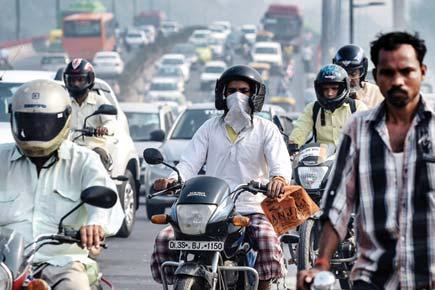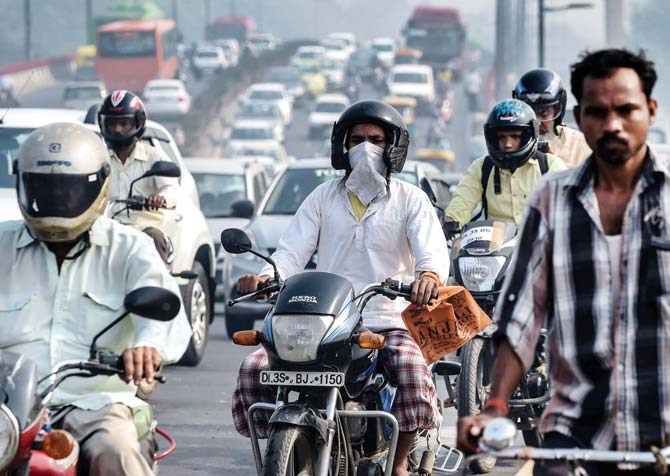With the sway it holds over popular culture, if anyone can get India thinking, it’s this city

 I miss living in Mumbai. After a four-year stay in Chennai and two-plus in Mumbai, we returned to Delhi in 2013. Those were seven years of civilised living, though one had to deal with intolerant Indians (also known as vegetarians). I live in Gurgaon, on Delhi’s outskirts, amidst leafy trees, an aviary of birds, flocks of peahens, gangs of monkeys, packs of dogs, apathetic cattle, and obnoxious Delhiites. There is also the Gurgaon that, the night I returned, looked like Las Vegas, filled with flash and light. In the daytime, the ineffectiveness of weekly-changing traffic innovations turn the roads into Cairo-like chaos. Shoot-outs are common. And they tout this as our version of that gleaming glass-and-light front of Shanghai, to which all foreign journalists are shanghaied, for showcasing China. But Gurgaon is now a suburb of Delhi proper, which, on the other hand, is more like Beijing: a seat of power from which emerges poisonous gas.
I miss living in Mumbai. After a four-year stay in Chennai and two-plus in Mumbai, we returned to Delhi in 2013. Those were seven years of civilised living, though one had to deal with intolerant Indians (also known as vegetarians). I live in Gurgaon, on Delhi’s outskirts, amidst leafy trees, an aviary of birds, flocks of peahens, gangs of monkeys, packs of dogs, apathetic cattle, and obnoxious Delhiites. There is also the Gurgaon that, the night I returned, looked like Las Vegas, filled with flash and light. In the daytime, the ineffectiveness of weekly-changing traffic innovations turn the roads into Cairo-like chaos. Shoot-outs are common. And they tout this as our version of that gleaming glass-and-light front of Shanghai, to which all foreign journalists are shanghaied, for showcasing China. But Gurgaon is now a suburb of Delhi proper, which, on the other hand, is more like Beijing: a seat of power from which emerges poisonous gas.

A biker uses a handkerchief to keep from breathing in the smoke in the air during rush hour in Delhi. Pic/AFP
ADVERTISEMENT
Delhi scores over Mumbai in one department: its chief minister. Arvind Kejriwal is despised by some people, like Mumbai’s own gas-producing Chetan Bhagat, who thinks that the Delhi plan to restrict cars (on a two-week experimental basis) based on odd/even licence plate numbers is sexist because single women are exempt; or even Delhi socialite (and occasional J&K politician) Omar Abdullah, who argues that this plan can’t be implemented since very few SUVs are petrol. Really. They seem unaware that most people commute by public transport — Mumbai’s Western, Central or Harbour lines are good examples, as is the sardine tin known as Delhi Metro.
Yet Kejriwal took a positive step to reduce pollution, even if what he did was reactive. In India, we have neither civic sense nor ecological awareness, and the fact that elites like IIT-IIM graduate Chetan Bhagat or Rahul-groupie Omar Abdullah talk nonsense, shows that climate change anxiety is not even an elitist concern in India, much less that of the aam aadmi. Which is why the 2015 UN Climate Accord reached by 195 countries in Paris over the weekend leaves me sceptical. The Accord commits all countries to lowering greenhouse gas emissions and thus preventing the Earth’s atmospheric temperature from rising by upto 2 degrees; global warming by carbon dioxide, water vapour, methane and ozone, is predicted to eventually cause doomsday scenarios like the melting of the polar ice caps and the flooding of coastal cities like Mumbai and Chennai. (We just had a sneak preview in Chennai.)
You feel sceptical not because India’s position has been that historical culprits like the West ought to do more than poor countries like India, which have to catch up on development (both the West and countries like India were content with the compromise — that there would be no historical responsibility, but that different yardsticks would be given to the developed and the developing nations); or that India has alleged that the West, in previous promises to fund our conversion to cleaner technology, has not really put its money where its mouth is.
Look at the main ways in which carbon dioxide is produced: through burning fossil fuels, through cement production, and through deforestation. Now you tell me. A corporate-sponsored government, like the one run by Prime Minister Narendra Modi, is hardly going to stop burning coal or penalise the use of diesel cars; it is hardly going to stop construction, considering our need for affordable housing — just think of all the cement that CM Devendra Fadnavis and Union Surface Transport Minister Nitin Gadakari will need to develop the Mumbai Port Trust’s vast unused land; and it isn’t going to stop deforestation, given that its industrial backers feel environmental clearances are an obstacle to development (for example, Vedanta Resources’ attempts to mine bauxite in the Niyamgiri Hills in Orissa). Maybe Modi’s deal with the Japanese will bring us a whole bunch of nuclear power plants, including the completion of Areva’s plant in Jaitapur, but building nuclear power plants takes lots of time and money, and after the 2011 Fukushima Daiichi nuclear plant disaster, we are all a bit nervous.
Most of all, though the River Ganga and Mother Earth figure in our mythology and culture, we really don’t care. If we did, we wouldn’t hand the cleaning of the river to an Std V-dropout with attention deficit disorder. And the government’s current cultural obssessions have more to do with controlling our “food, gods and love” as prominent Delhi-walla Vikram Seth pointed out, than to integrating our traditional ecological awareness with modernity. Our media and elites are complicit: I bet neither Chetan nor Omar have heard of Prussian scientist Alexander von Humboldt (b. 1769), who theorised that the Earth was a single, living organism, and who had, in 1800, predicted climate change.
If anyone is going to get India thinking it will be Mumbai. It disseminates Indian popular culture through its domination in film, books and music — not the high priests of Orwellian Delhi. Mumbai may be flawed, but who isn’t? And this hope and optimism that the city naturally engenders is one of the reasons I miss living in Mumbai.
Journalist and writer Aditya Sinha is the co-author of Kashmir: The Vajpayee Years. He tweets @autumnshade. Send your feedback to mailbag@mid-day.com
 Subscribe today by clicking the link and stay updated with the latest news!" Click here!
Subscribe today by clicking the link and stay updated with the latest news!" Click here!







